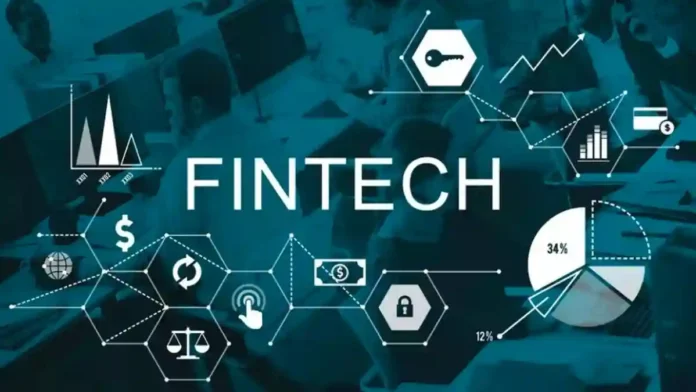Financial inclusion drives economic transformation in India’s enormous economy.
The Global Findex research found that 76% of global adults have a bank or mobile money account, whereas 80% of Indian adults do. India’s financial institutions and fintech businesses use digital tools to bring the unbanked into the formal financial system. In the global fintech sector, India is a leader.
Despite improvements, MSMEs, which drive India’s GDP, face obstacles. Credit restrictions, complicated applications, and strict collateral requirements are these issues. To overcome these challenges and advance financial inclusion, fintech companies have become essential allies.
Technology Drives Financial Inclusion
Indian fintech penetration is 87%, higher than the worldwide average, demonstrating technology’s disruptive impact on the country’s financial sector. Digital payment systems, mobile banking, and other fintech developments have made financial services affordable and accessible, lowering transaction costs.
The UIDAI public digital infrastructure has revolutionized identity verification and Know Your Customer, making the digital shift easier and enabling most online banking services. The Pradhan Mantri Jan Dhan Yojana and India Stack have also increased financial inclusion and fintech adoption in India by allowing fintech startups to create new tech products and building a strong digital infrastructure for public and private digital ventures.
These projects have benefited marginalized groups. Mobile banking has revolutionized rural areas by providing online banking and credit to underserved communities. Growth has healed the rural-urban gap, boosted the economy, and reduced income inequality. MSMEs seeking loan services have also benefited, boosting the economy.
Financial Accessibility Improvement
Fintech and financial inclusion have helped underprivileged groups get traditional banking credit. MSMEs have struggled to get financing, but fintech helps them without a bank account. They can conduct more accurate credit risk assessments utilizing alternative data with AI and machine learning, allowing small businesses to enter the formal banking system.
Other financing schemes, such Buy Now, Pay Later (BNPL), let consumers buy and pay later without interest. In the Faster Rotation Credit Line (FRCL) concept for MSMEs, small businesses can use a revolving credit line numerous times within a credit period, giving the underbanked many financing options.
Open banking, which provides many of these services, has transformed the scene by using APIs. Open Banking lets clients own their financial data and securely share it to access a variety of financial services from numerous sources. Traditional banks expand their reach and fintech startups gain stability and trust through collaborations.
Building an Equitable Technology Future
Technology has bridged gaps and empowered the underserved, but regulatory agencies, banks, and fintech firms must work together to continue financial inclusion.
Fintech hazards include cybersecurity, regulatory complexity, data privacy, digital literacy, and customer trust. All stakeholders must thoughtfully address these obstacles and encourage innovation for progress. To protect consumers and fintech, crypto and DLT need clear guidelines. A strong digital world for fintech transactions and a level playing field require continued investment in Digital Public Infrastructure (DPI). Singapore and India have successfully implemented DPI through public-private partnerships.
The fintech sector has benefited from forward-thinking policies including PSD2 in Europe, Fintech Law licenses in Mexico, fintech sandboxes in Brazil, and UPI in India. Another positive step is the recent approval of the popular bank-fintech collaboration model for digital lending, First Loss Default Guarantee (FLDG).
MSMEs account for approximately 70% of global jobs and GDP, so the B2B fintech sector, which serves them, has great potential.
Economic Forum. According to projections, B2B fintech revenues would grow 32% annually to $285 billion by 2030.
Technological transformation is crucial for over 400 million MSMEs worldwide. Financial inclusion initiatives help India achieve an equal and prosperous future by encouraging stakeholder creativity and collaboration.
Conclusion:-
Financial inclusion is vital to India’s economic change, since 76% of adults worldwide have a bank or mobile money account. India’s financial institutions and fintech businesses use digital tools to bring the unbanked into the formal financial system. Challenges remain, especially for MSMEs, which boost India’s GDP. These include strict collateral requirements, limited credit access, and complicated application processes.
Technology has driven financial inclusion in India, with 87% adoption above the worldwide average. Digital payment systems, mobile banking, and other fintech developments have made financial services affordable and accessible, lowering transaction costs. The UIDAI public digital infrastructure has transformed identity verification and KYC, while the Pradhan Mantri Jan Dhan Yojana and India Stack have increased financial inclusion and fintech acceptance in India.
Fintech and financial inclusion have helped underprivileged groups get traditional banking credit. Fintech employs AI and machine learning to produce more accurate credit risk assessments using alternative data, allowing small businesses to enter the formal financial system. Underbanked people can also use Buy Now, Pay Later (BNPL) and Faster Rotation Credit Line (FRCL) lending arrangements. Application Programming Interfaces (APIs) have transformed open banking by giving clients more control over their financial data and enabling secure data sharing for simple access to different financial services from multiple suppliers.
Financial inclusion requires collaboration between regulators, banks, and technology startups. Clear norms for developing sectors like crypto and DLT and sustained investment in DPI are essential for a healthy digital environment for financial transactions and a level playing field.



